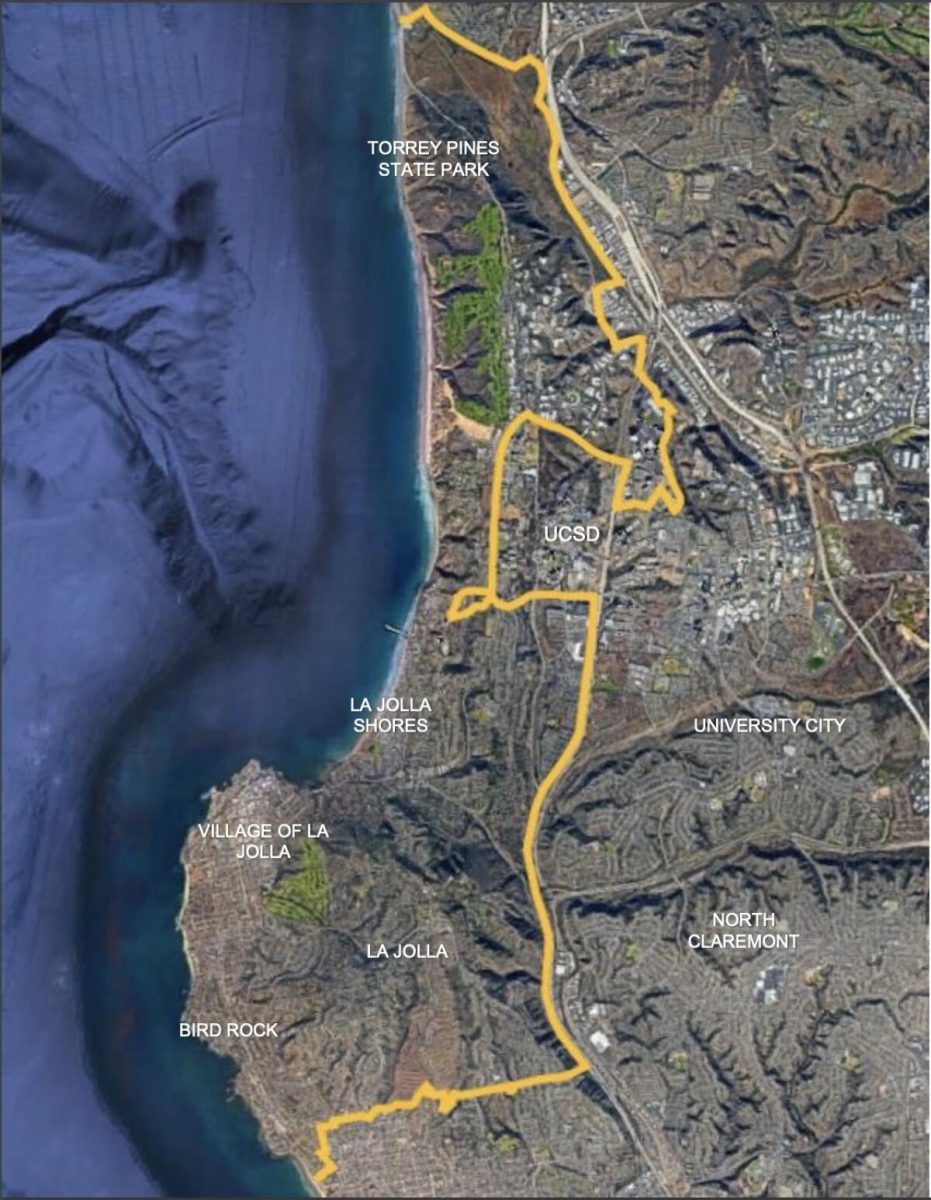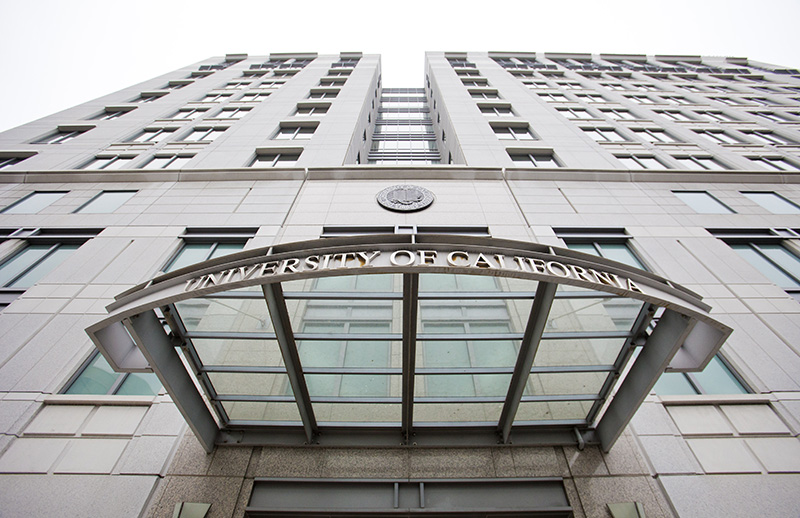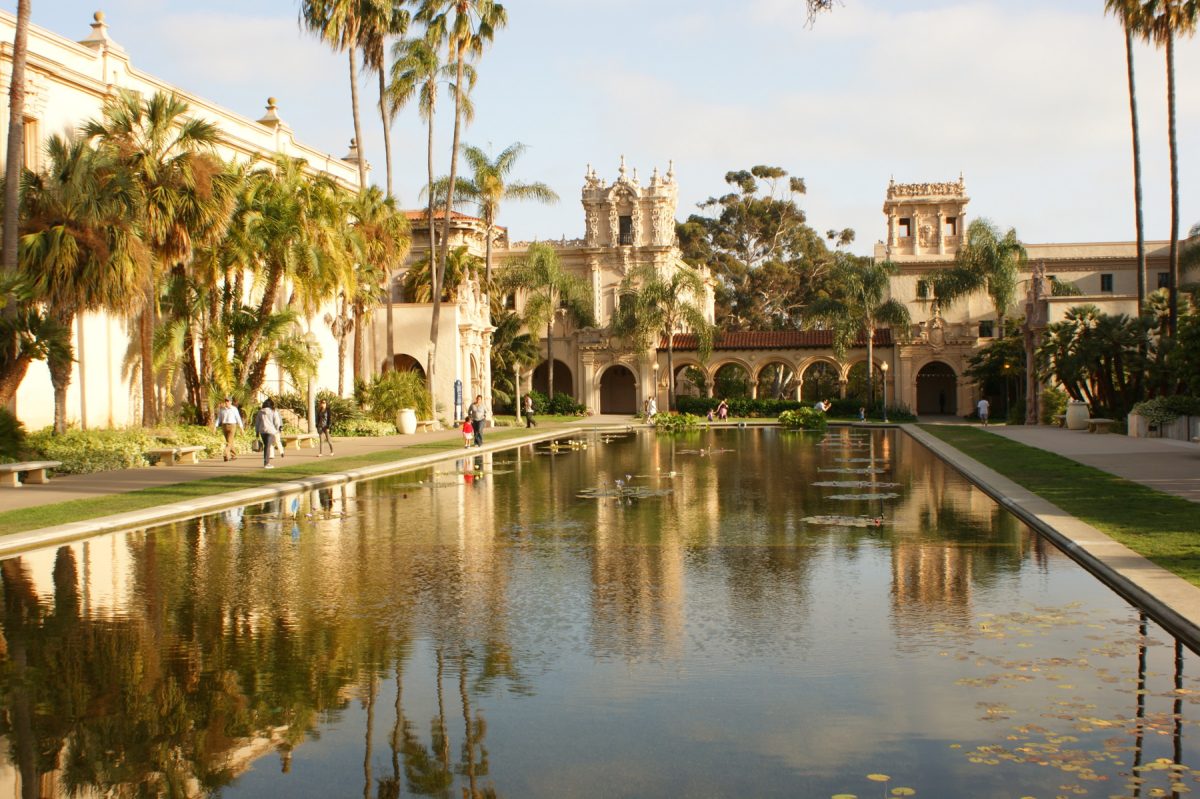The Association for the City of La Jolla has been aiming to separate from the city of San Diego for several years. As of Jan. 30, they have finally gathered the support needed to move forward with their application for cityhood, which outlines new boundaries for La Jolla that exclude UC San Diego.
According to the San Diego Local Agency Formation Commission, acquiring cityhood first requires signatures from 25% of registered voters for the registered district to get on the ballot. Between these steps, the ACLJ must also submit a deposit of $66,000, which the organization has already fundraised. Now, having gathered nearly 8,000 signatures, they are able to move forward with this proposal in the referendum process.
Next, a majority vote collected by San Diego and La Jolla residents will determine if La Jolla’s cityhood status will become official.
Since its founding in September 2021, ACLJ has actively engaged with the local community to advocate for La Jolla’s independence. If La Jolla obtains cityhood, the association aims to improve aging infrastructure, enhance public safety and cleanliness, and allow residents to prioritize projects tailored to the community, according to the ACLJ’s mission statement.
From the San Diego side, the ACLJ contends that the city would financially benefit from La Jolla’s secession. The city currently bears La Jolla’s financial burdens and the maintenance of its coastline. Additionally, they argue that an independent La Jolla would create a reliable ongoing income stream through contract services between itself and San Diego.
The committee is steadfast in their decision to exclude UCSD from the boundaries of La Jolla. Trace Wilson, president of ACLJ, explained their reasoning.
“There’s a transient kind of voter population of about 45,000 people,” Wilson said, alluding to the population of UCSD. “The city of La Jolla is only going to be about 39,000 people.”
Wilson indicated that the association wants to prioritize local interest groups over UCSD’s student body because of this number discrepancy.
Wilson acknowledged the role that the La Jolla government plays in shaping the UCSD experience, from housing to business to alumni becoming residents. He believes that an independent La Jolla will help, not hurt, this interdependence.
“I think it’ll strengthen [La Jolla and UCSD’s relationship] if we are self-governing La Jolla; we’re gonna be able to make important decisions that bring the University and the town together,” he said.
Wilson explained that a self-governing La Jolla could lead to more targeted and flexible reforms in addressing student housing needs. He believes San Diego’s broad regulations have been a barrier to effective housing solutions in the La Jolla region.
“I think there’s a real opportunity — with the [projects] that are going on in urbanism — to have micro-units and convert sort of useless office and bank buildings into very worthwhile housing stock that UCSD students could choose versus just being on campus,” Wilson said. “I think, you know, La Jolla should be multi-generational.”
Third-year Erin Kang believes that the current La Jolla area encapsulates part of what makes UCSD unique.
“UCSD is arguably one of the main hotspots of the general area of La Jolla,” she said. “There are also many aspiring college students choosing to come to UCSD with the idea of enjoying the beauty of the seaside neighborhood, and while I don’t particularly think putting an exclusive label on La Jolla will change many students and tourists’ minds about the school, it does feel like the action of exclusion itself is a tad disdainful.”
Another third-year and commuter, Pedro Bonilla, is more apprehensive about the newly proposed La Jolla boundaries.
“The city runs a lot of the public transit that students rely on, like the trolley and bus routes that connect UCSD. It just seems like it would make things more complicated for students who don’t live on campus,” Bonilla said.
In response to these concerns, Wilson said that future measures will incorporate UCSD into the city, despite the proposal marking the campus outside of its boundaries.
“I could foresee us having, with UCSD students actually on, a commission that is reporting in and out to the city, the new city council. … I would propose a representative that is directly hired, if not elected, to be the tie between the 40,000 population of [La Jolla] and the University. It’s too important; the relationship needs to be front and center … going forward,” Wilson said.
When asked about the potential impact of La Jolla’s push for cityhood on local businesses, Rolando Bonanci, manager of The Kebab Shop in La Jolla Village Square, did not express any concerns.
“I’m not really from here, and I really didn’t know anything about this,” Bonaci said. “As far as businesses, it shouldn’t impact us. We do have a variety of students that come in and order here.”
Mike Eastwood, owner of Smallgoods Cheese Shop & Cafe in La Jolla, is cautiously supportive.
“I might optimistically hope for a slight bump in sales from those living inside the newly incorporated zone — due to their wanting to support the local businesses where their tax dollars now benefit from it,” Eastwood said.
He echoed Bonanci’s lack of concern about the change. “I can’t think of any good reason why anyone’s dining preferences would be motivated one way or the other by this kind of a boundary.”
The UCSD Guardian will continue to follow this story as more information on the ballot becomes available.










Agustin Resendiz • Sep 19, 2025 at 6:36 pm
I am an alumni. It’s obvious that La Jollans (to those whom it applies) simply don’t want anything to do with UCSD or its students. They want to stay in their wealthy bubble without regard or association with the University and its population which contribute so much to the community. This is a very elitist sentiment in this proposal.
Jenni Brandon • Feb 12, 2025 at 9:11 am
Are we going to talk about how that map includes Scripps Institution of Oceanography and Birch Aquarium, both parts of UCSD, as still in La Jolla? UCSD goes straight to the ocean, via the Scripps Pier, and would actually cut this proposed La Jolla in two.
Debbie Terry • Feb 5, 2025 at 8:12 pm
What are the southern most streets on this map?
News Editor • Feb 10, 2025 at 2:08 pm
Hi Debbie,
The border of the proposal is perpendicular to La Jolla Blvd., La Jolla Mesa Dr, Cardeno Dr, Soledad Rd, Soledad Mountain Rd, and ends at the 5. The border lies north of Van Nuys St. and Turquoise St. in Pacific Beach. However the border is not along any particular road. I hope this information was helpful.
Ben • Feb 5, 2025 at 7:01 pm
Trace Wilson couldn’t sell ice to penguins. Collaboration between La Jolla and UCSD?
Like how they refuse to upzone any of their neighborhood? Like how they said they want to “collaborate” in the future, but gerrymander campus out of the proposed city? Give me a break. This is patently exclusionary actions to insulate a wealthy area of San Diego and allows them to operate outside of SD city measures. They don’t even collect enough taxes in the selected area to sustain services, do repairs, etc. as it is right now… and you think they want to secede to raise taxes?
This move ensures La Jolla gets to leech off greater San Diego for years to come. Despicable actions.
Hartz • Feb 5, 2025 at 2:52 pm
Nope! Bad idea! If San Diegans get screwed, so does La Jolla. No separation of any kind!
Amiga • Feb 5, 2025 at 9:57 am
I am a homeowner in La Jolla and am deeply offended by this proposition. I find it elitist. I hope those who want improvements will work within San Diego. I love La Jolla and am a proud San Diegan.
Jeffrey A Dunford • Feb 5, 2025 at 7:31 am
The greedy city sees a bigger income stream to their unaccountable overpaid personal and underfunded pensions. La Jolla assumes responsibility of a neglected child while paying alimony to the absent parent.
Jay • Feb 5, 2025 at 5:54 am
Carmel Vlalley and other communities should do the same. San Diego City is very badly managed and locals should mange their communities not the San Diego